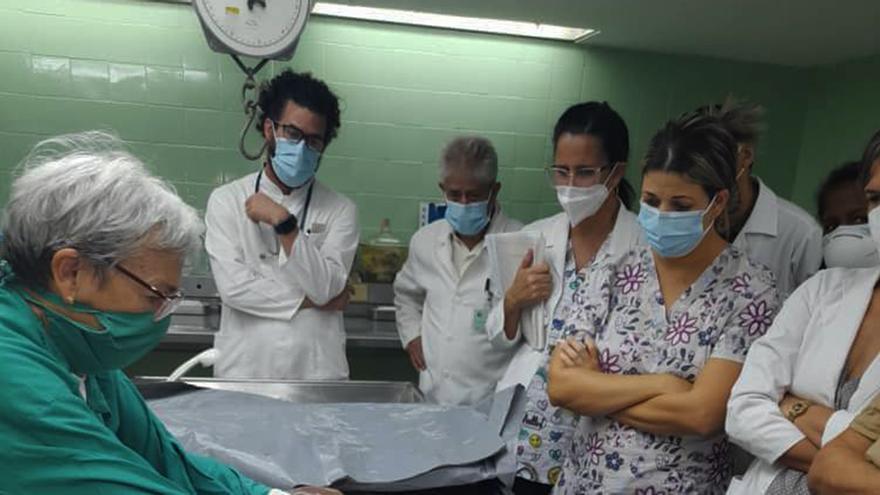
![]() 14ymedio, Mexico, January 18, 2024 — Mexico pays Cuba 27,914 dollars in foreign currency (484,041 Mexican pesos) annually for each of the 428 students studying medical specialties on the Island. The figures reveal, according to a report published this Thursday in El Universal, that the education of these scholarship recipients on the Island is more expensive for the Administration of Andrés Manuel López Obrador than, for example, in the United Kingdom, where it pays just over $21,000 for each student.
14ymedio, Mexico, January 18, 2024 — Mexico pays Cuba 27,914 dollars in foreign currency (484,041 Mexican pesos) annually for each of the 428 students studying medical specialties on the Island. The figures reveal, according to a report published this Thursday in El Universal, that the education of these scholarship recipients on the Island is more expensive for the Administration of Andrés Manuel López Obrador than, for example, in the United Kingdom, where it pays just over $21,000 for each student.
Scholarships are, in fact, one of the mechanisms for injecting money into the Cuban regime, according to data collected in the same newspaper. While the number of places for medical studies on the island increased, the National Council of Humanities, Sciences and Technologies of Mexico (Conahcyt) drastically reduced the aid in other countries. Without going any further, scholarships granted for master’s degrees went from 1,793 in 2015 to 148 in 2022, while those for doctorates suffered a plummet from 813 to 103, in the same period.
The Mexican newspaper also denounces that due to excessive payment for these studies “master’s or doctoral degrees are not obtained.” The information obtained from the database of postgraduate scholarship recipients reveals that it is cheaper for Mexico to have a scholarship student in the United States (currently there are 285), for whom it pays 20,970 dollars annually, 7,000 less than in Cuba. In other countries, the cost is lower, if possible: in the Netherlands (71 scholarship recipients), $20,389; in Spain (149), $18,666; in Canada (316), $18,415; in Germany (110), $17,379, and in France (86), $16,689.
“A scholarship in Germany costs 61.7% of what Cuba charges. France costs 59.2% of what it costs to go to study on the Island,” highlights El Universal.

In October of last year, a Health official, who asked that her name be withheld, confirmed to 14ymedio that “Mexico began to limit places to study in the United States, Germany, Spain and the United Kingdom and opened them in Cuba.”
The figures published by El Universal do not address the issue of desertions, which according to the official, were several due to the “lack of transparency” of the positions. “Cuba does not attract like the United Kingdom, Germany, the United States and Spain. There were many who denounced the lack of infrastructure,” she acknowledged at the time.
Given the possibility of more desertions, in 2022, Conahcyt received approval to deliver 1,500 euros as “one-time additional support” to Mexican medical students who agreed to continue their scholarship on the Island. The money, paid in a single installment, is added to the $1,100 that is deposited monthly to scholarship recipients without financial dependents and $1,400 to those who have children or are married.
Between 2021 and 2023, this same source recalled, Conahcyt has awarded scholarships to Mexican students to study their specialty at the University of Medical Sciences of Havana, the Ministry of Public Health or the Medical Surgical Research Center.
The person in charge of receiving payments for the 428 medical students on the Island is the Comercializadora de Servicios Médicos Cubanos, SA, the state company accused internationally of human trafficking and forced labor for keeping most of the salaries (between 70 % and 90%) of Cuban health personnel serving on the missions deployed in numerous countries.
____________
COLLABORATE WITH OUR WORK: The 14ymedio team is committed to practicing serious journalism that reflects Cuba’s reality in all its depth. Thank you for joining us on this long journey. We invite you to continue supporting us by becoming a member of 14ymedio now. Together we can continue transforming journalism in Cuba.
